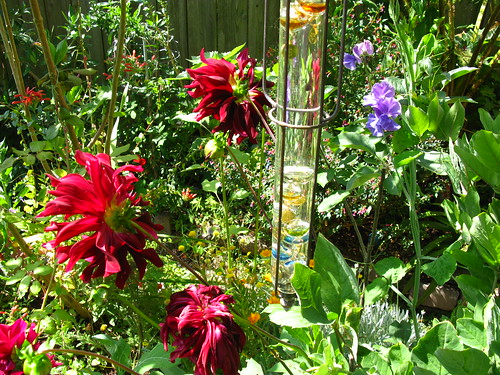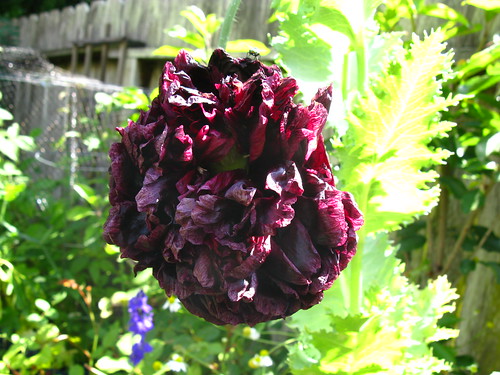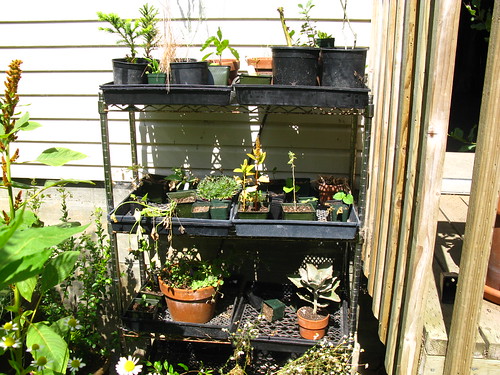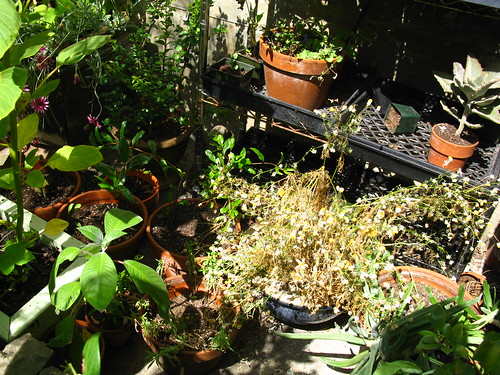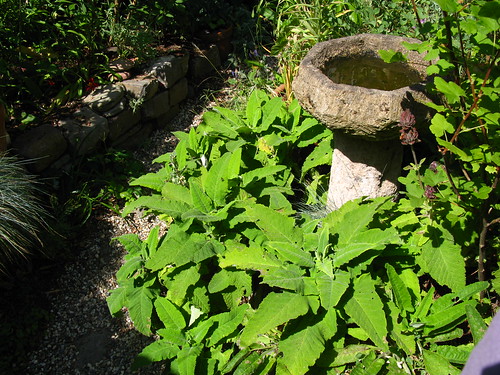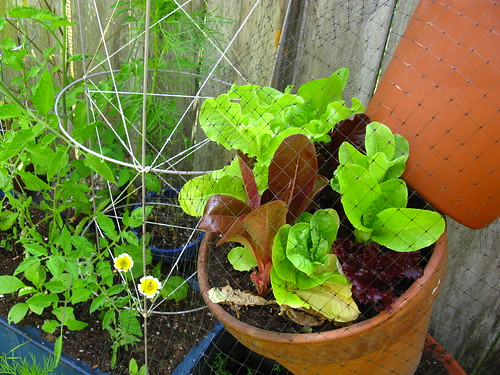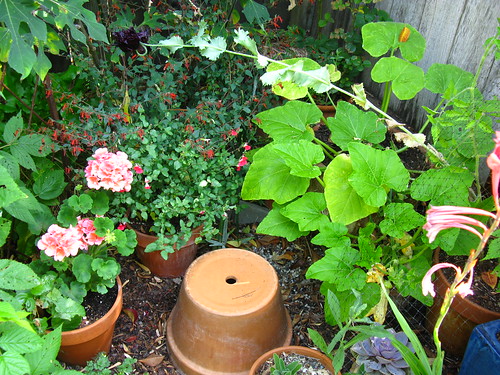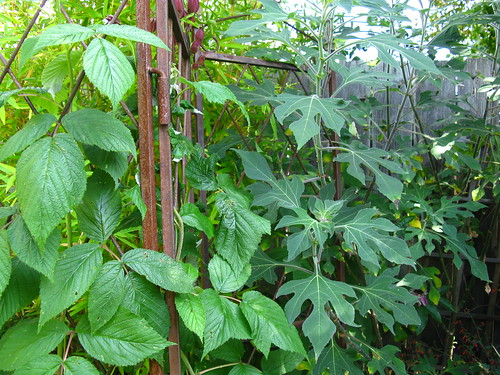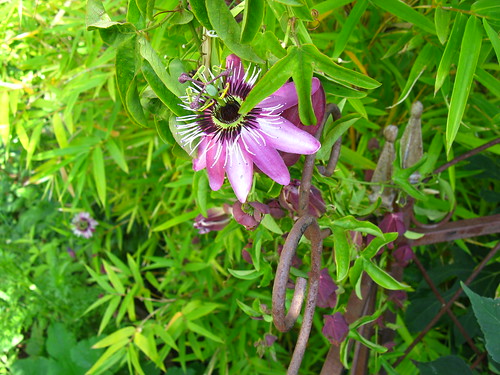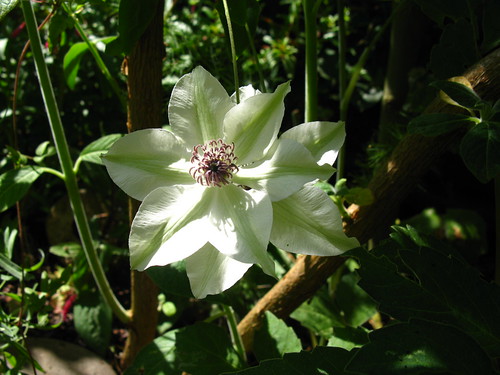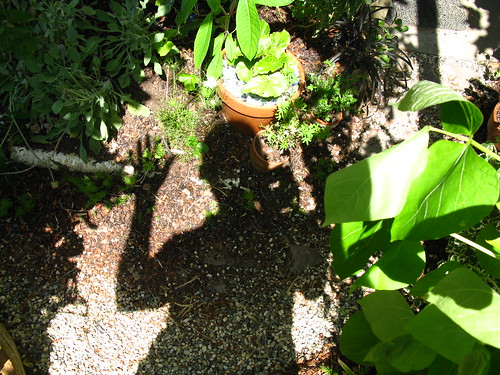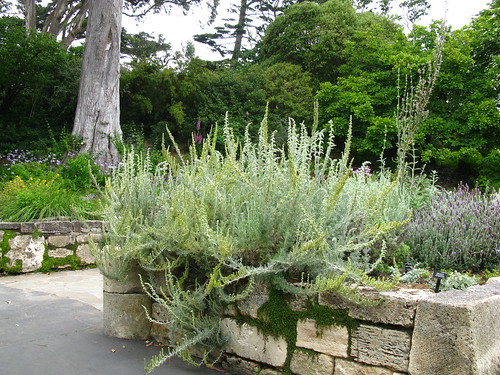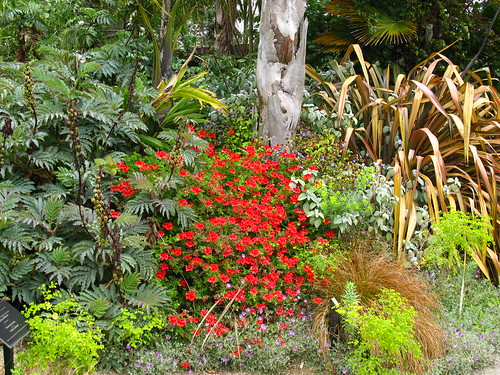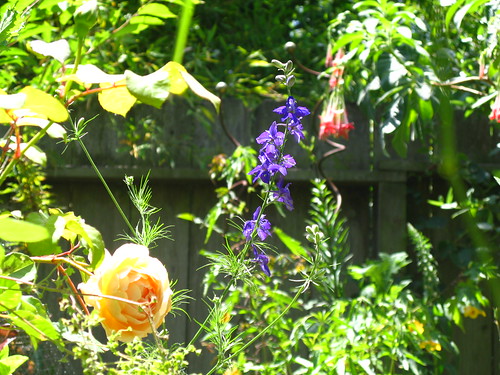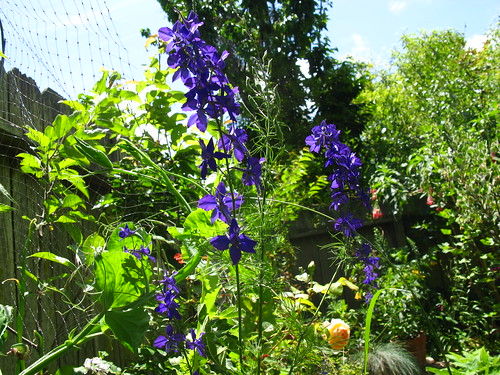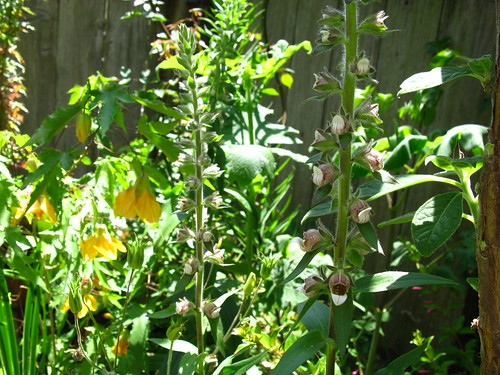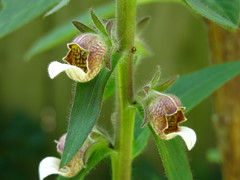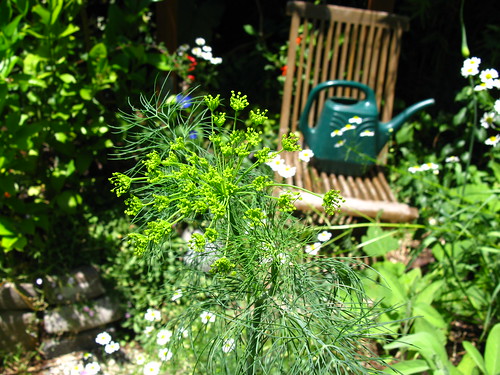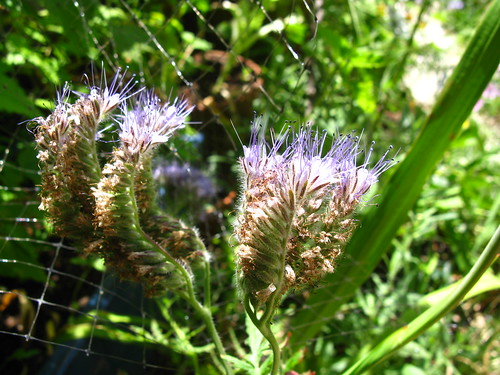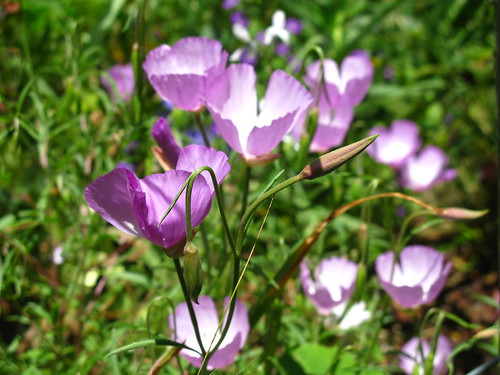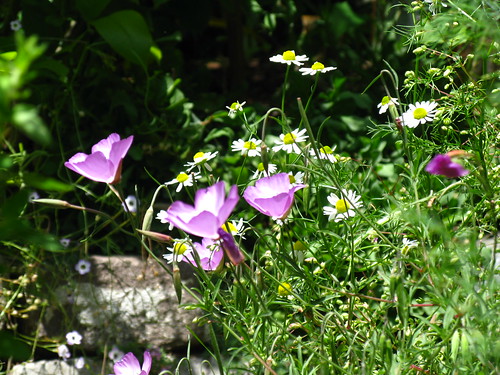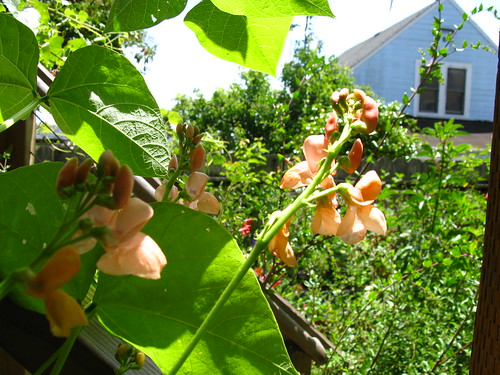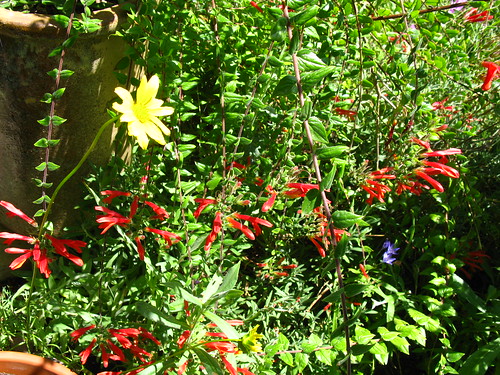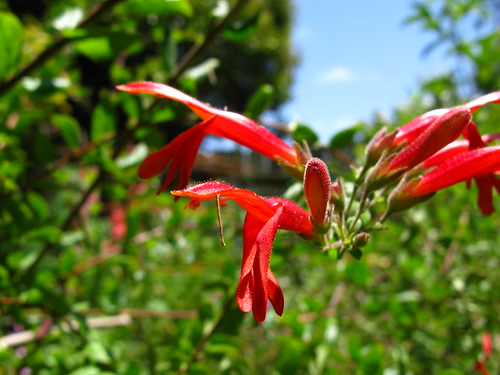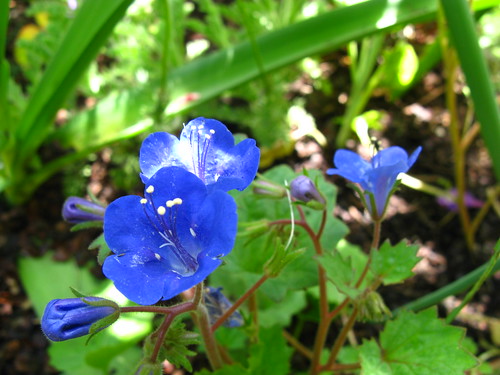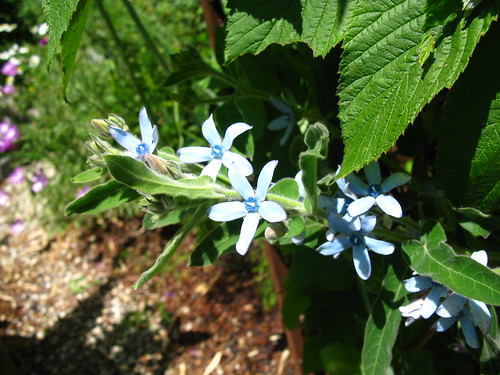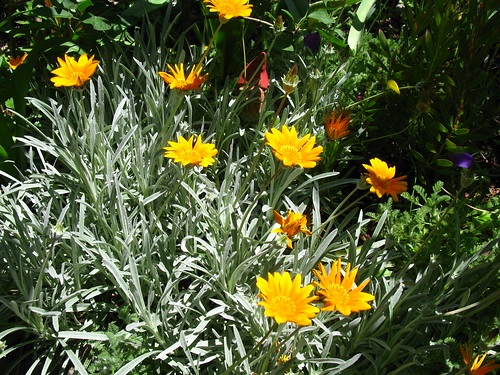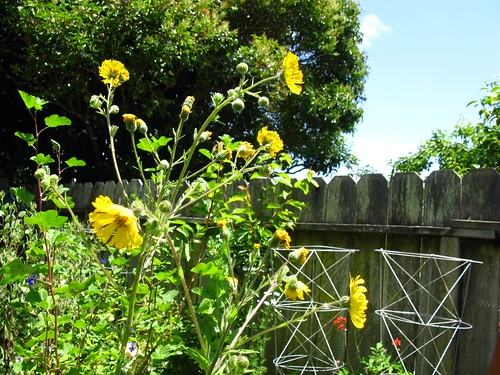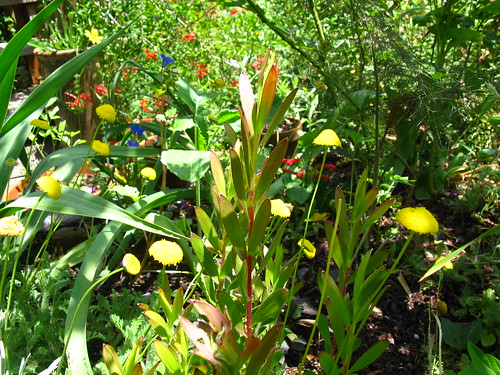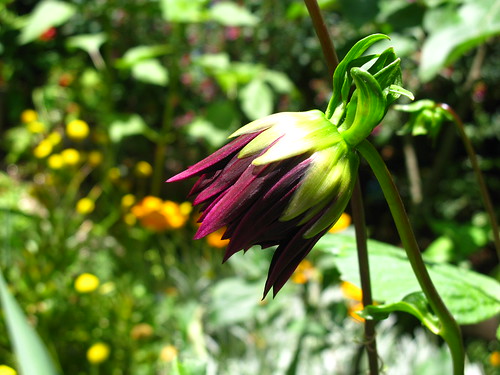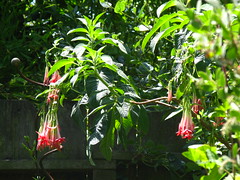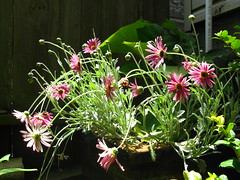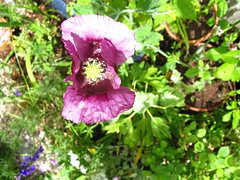I've been a juror on a criminal trial in federal court since May 18 when I was summoned for
voir dire. Today we finally gave the court our verdicts, and the judge set us free.
I have my life back, and I have so much to catch up on! The garden is full of neglect right now and I must attend to it.
But first I want to briefly recap the trial as a record of my own experience, and for anyone else who cares to read about what happened... this blog post is not what this blog is usually about...but then again, that's up to me.
In a nutshell, the case dealt with the managers of an illicit wholesale corporation in the East Bay named Rosemont, operated by a Mr. Hassan and a Mr. Soufian. Rosemont knowingly obtained stolen merchandise (especially high-demand items like over-the-counter medicines, baby formula, batteries, etc.) from low-level fences, re-packaged the stolen merchandise, and sold it to retailers nationwide.
The low-level fences selling to Rosemont bought the stolen goods from
boosters--assorted professional low-lifes who clear off whole shelves of merchandise in stores like Wal-Mart and Target and walk out the door with it. The fences operated out of corner convenience stores in a sketchy Oakland and San Francisco neighborhoods. In our trial, two fences turned state's evidence against the two defendants. More on all that below... Investigators describe the whole enterprise, from boosters up to the illegitimate wholesalers as
organized retail theft.
During the trial portion, we heard testimony for ~5.5 hours a day, Monday through Thursday, between ~9 a.m. and 4 p.m. The trial went from Wednesday, May 20 to mid-day on Monday, June 15. Closing arguments lasted most of the next day, and then we got some jury instructions. The judge finished instructing us on the morning of Wednesday, June 17, and gave us the case to deliberate. Deliberations went on ~6 full days, including Friday, until 3ish on Thursday, June 24, when I (as jury foreman) wrote and signed the following note and handed it to the court clerk:
We have reached a unanimous verdict on a number of counts.
As to the counts for which we have not reached a unanimous verdict, we firmly disagree.
[Signed]
All juror communications to the court must be done as a signed writing,
period.
There were 68 counts total--42 against one defendant (Mr. Hassan) and 24 against the other (Mr. Soufian). They included conspiracy to transport stolen merchandise across state lines, the actual transport of the stolen merchandise across state lines, and
structuring currency transactions to avoid
reporting requirements. The
San Francisco Chronicle's accounts of the case before it went to trial are
here.
Five other jurors and I thought the government's case was overwhelming and voted guilty on all counts against both defendants. The other jurors felt otherwise and voted along various lines...
Two jurors in particular seemed suspicious of the government's case and wondered aloud about evidence that was not presented. In a criminal trial, a juror may find a defendant not guilty due to a lack of evidence, but a curious, suspicious, or philosophical interest in evidence that "could have been" presented but was not is inappropriate. Furthermore, when speculation like that always points in favor of one side, it suggests a bias. A juror has no basis to form an opinion about evidence that wasn't presented (really, a contradiction in terms)--such evidence could have gone for the defendants, or against them.
Anyhow, I addressed this matter directly when it came up--once very early in the deliberations, and again two days later. The two jurors scrubbed their rhetoric, and maintained that they did not find sufficient evidence to convict the defendants on particular counts. I scrutinized their reasoning for other signs of bias. I may always have a residue of doubt in my mind about their sincerity, but in the end, by the time we got through all the counts, their verdicts seemed at least consistent with fair reasoning.
Some jurors were uneasy making any inferences in the case. I make inferences all the time in my line of work, so that came as second nature to me. In fact, I found it hard to avoid making inferences during the trial phase. I can probably suspend my critical faculties for a few days, but four weeks? I don't think I can ever serve on a long trial again--not without my head exploding. I was
impressed (surprised!) by how many jurors began the deliberations with a completely open mind. I, on the other hand, had to confess that I was already "tilting" in one direction on the second day of deliberations.
The court allowed the jury to make inferences "not based entirely on speculation" and using common sense. I thought the case did require a few simple, common sense inferences, but the nay-sayers would have none of it. Distinguishing between what is possible and what is reasonable was a sticking point for some jurors. This matters because the threshold is guilty beyond a reasonable doubt, not guilty beyond all possible doubt. Some people seemed to think that if something was possible, it was therefore reasonable. Or, they were unwilling to make a distinction. Such an error! I was left wondering if there is any such thing as
common sense.
It was hard for some jurors to look past the repugnance of the fence who turned state's witness as part of a plea agreement, Mr. Mossleh. His role in the conspiracy gave the defendants plausible deniability. By the defense's account, we were to believe the defendants had no reason to believe the goods Mr. Mossleh sold them were stolen, and that he pulled the wool over their eyes. As Judge Judy would scream, "That's ridiculous!"
By the time the defense was done rifling through Mr. Mossleh's seedy past, he seemed like someone who would say absolutely anything, if it served his interests. My only comment to that was, saying that Mr. Mossleh will lie to serve his interests is not the same thing as saying that all of Mr. Mossleh's interests require him to lie. Ultimately, for me, Mr. Mossleh served as a contextualizing element and not much more. His testimony was unreliable on direct and evasive on cross. It was not all that useful (to me) in reaching guilty verdicts.
Of course the defense wanted us to focus squarely on Mr. Mossleh and not their clients. In closing arguments, one of the defense attorneys kept saying "Mr. Mossleh is just so terrible, I really don't want to talk about him anymore", but he did keep talking about Mr. Mossleh, over and over again. I found that technique facile, but clearly some jurors bought it. The defendants had plenty of reasons to be suspicious of Mr. Mossleh. Their lack of suspicion was very suspicious! At any rate, attorney arguments are not evidence.
A few comments about witnesses generally:
As a witness on the stand, it may seem to you that you are having a conversation with an attorney. But remember that you are really communicating with the jury. The attorney already knows your story. The jury is there to hear what you have to say for the first time. If, as a witness, you have an interest in the outcome of the case one way or another, you especially should keep this in mind.
Also, if you want me to like you, always answer a yes-or-no question with a simple yes or no. If more information is required the attorneys will ask you for it. You can rely on them to do that. Answering every question with the fewest words possible is very helpful to a jury. Bravo to the witnesses from Abbott Nutrition and FedEx who both seemed to understand this.
Finally, and this is very important, if you are someone who tends to finish every sentence with a smirk or a chuckle, do away with that. It plays horribly on the stand. Also, avoid wearing showy patriotic ties if you work in law enforcement. Why not a discreet flag lapel pin instead? You will appear a bit more even-handed.
My favorite prosecution witness was a fence's wife, Ms. Mona. Her presence electrified the jury and she was a live wire on the stand. We got the sense she was coerced into joining the conspiracy by her Palestinian in-laws--the marriage itself arranged to make peace between two families after an accidental shooting left someone dead!
Ms. Mona's volatile demeanor on the stand ranged over periods of milliseconds from agitated and angry to defensive and wounded. She seemed confused about who was on her side. In her mind, the only person on Mona's side was Mona. She was an exposed nerve, full of anger and hurt. I felt sorry for her but also wondered about her culpability. In testimony preceding hers, her brother-in-law portrayed her as a scheming drug addict. She portrayed him as a controlling liar. It made a big difference that he went first. If he'd gone after her, it would have been hard to evaluate him impartially.
For their part, the defense wanted us to believe that Rosemont was part of a vast secondary marketplace in discontinued, damaged, and close-out goods, known in B-school as a "
reverse logistics" operation. Merchandise that doesn't sell well at big retail stores gets dumped onto this secondary marketplace where enterprising "jobbers" find ways to extract what value they can from it by selling at flea markets, auctions or yard sales. The defense called three witnesses to help us understand this business model, the most successful practitioner of which would appear to be Los Angeles'
Via Trading--founded, owned, and operated by a Harvard MBA.
As interesting as all that was (or not), the defense was shrewd to call a quirky little old Philipino lady named Ms. Thelma who also worked in this secondary marketplace. Working mostly at flea markets, Ms. Themla's a small-timer compared to the model seen at Via Trading. Apparently legitimate, she was the pattern Rosemont used to organize their dealings with the shady Mr. Mossleh. She took the stand in a green velour pantsuit and white emo belt. She spoke in a high, giggly voice and seemed impervious to the courtroom's solemnity. She reminded me of a cat toy. The jurors really liked her. She was fun at first, but I grew annoyed with her rambling, redundant testimony. By the end of it, I was seething with rage.
The defense was curt when they wanted a simple yes-or-no answer from a prosecution witness. But when the prosecution asked Miss Thelma a yes or no question, she proceeded to answer in her inimitable, rambling style. The defense objected vigorously to the prosecution's very mild attempts at reining her in. We ended up staying late that day.
Seething with rage, ladies and gentlemen!
But getting back to the idea of the secondary market, not all of Rosemont's customers were illegitimate. They didn't only buy goods from boosters. By getting some stuff from legitimate sources, and blending it in with the stolen merch, they created a complicated picture that some jurors found hard to untangle.
The defense called two witnesses from Rosemont, Mr. Hassan's sister Ms. Tanal who performed sales and accounting functions, and the defendant Mr. Soufian who gave up his 5th Amendment right not to testify. I reacted badly to both of these witnesses.
In one short exchange with the defense attorney, Ms. Tanal testified that Rosemont had two bank accounts (Wells Fargo and Bank of America) because the company wanted to build relationships in anticipation of applying for loans, etc. My bullshit detector screamed at this. You may do business with a bank, but you do not have a relationship with them. The bank is not your friend. If you apply for a loan, the bank will pull your credit report just like they would with anyone else and make a decision on that basis. It won't matter to the bank if you have an account with them or not.
It would have been nice if she could have said that Rosemont maintained one account for payroll, rent, and taxes and another account for daily business expenditures, but of course she couldn't say that. Rosemont used two accounts to fund the same illicit activities and avoid currency transaction reporting requirements--which btw I cannot believe for one minute they didn't know about esp. given the fact that she and the two defendants all took a number of business classes at Chabot College.
She also lied about her residency on her community college application which I think the jurors were much too willing to overlook. (California has many excellent and affordable two-year community colleges, but you must meet residency requirements to attend at an affordable rate. Otherwise it's very expensive. Non-residents have an incentive to lie. That was my sense about what she did.)
We were all surprised when one of the two defendants took the stand. I was much more inclined toward reasonable doubt with him before he testified. Like Ms. Tanal, his testimony betrayed a variety of little lies and evasions--too many to even bother elaborating. The prosecution did an excellent job taking him apart. I only wish she'd kept going. He seemed like he was about to crack.
The unanimous jury found Mr. Hassan guilty on four counts (conspiracy, transport, 2x structuring). The votes on all his other counts ran 11-1 in favor of guilty. The jury deadlocked 6-6 pretty much down the line against Mr. Soufian. I think people found it easier to impute more culpability to Mr. Hassan since he was portrayed as the ringleader. "The other guy could have been following orders without knowing what he was doing." Possible, but very unreasonable in my opinion. Still, Mr. Soufian standing subordinate next to Mr. Hassan created some some contrast between the two in the jury's mind. Also, the judge directed us to consider the two defendants separately.
Convicting someone on one count, let alone 24, is a big responsibility. Did some jurors retreat from that? I don't know. I wish I'd been able to convince more people of my view, but our system only requires one person to disagree and it's a high hurdle to clear. I did the best I could. We pored through the evidence, calling back exhibit after exhibit. At one point we even had testimony read back to us.* The judge seemed very emphatic and genuine about his appreciation for our work and that will help me put the whole experience behind me. Which is where it belongs.
*A sham designed to amuse and entertain the juror who demanded it, I wondered.
People may have an
idée fixe that the jury foreman facilitates the jury's deliberations. Formally, the foreman
presides over the deliberations. We agreed, at my urging, to pass the duties of facilitator among the jurors. I facilitated for the first 2 days, someone else facilitated for the 3rd day, another person facilitated on days 4 and 5, and a fourth juror facilitated on the 6th and final day. The foreman's one real concrete responsibility is to speak for the jury in the courtroom when the deliberations are done. The verdicts are given to the court on verdict forms, and read to the courtroom by the clerk. So af far as speaking for the jury gods, my responsibility as foreman pretty much came down to a "yes", "yes", and "that's correct". The judge polled the jury and they all had to say some yeses and I agrees as well.
I think alternating facilitators is a good thing to do, because no one person will be the perfect facilitator, and anyone who wants the job will likely be sufficiently good at it. In a case of this size, the regular freshening of perspective was an added benefit.
On the subject of fresh perspectives, we had to re-read the jury instructions several times a day to keep our minds clear on the assignment. All the crimes had multiple elements with dependent clauses and vital and's and or's to keep straight. And I wonder if that's an unintended, beneficial side effect. If you make a lasagna from an easy recipe, you'll become familiar with how it's made, and you'll eventually stop using the recipe. Eventually, the lasagnas you make will vary considerably. But if the lasagna recipe is so complex that you can't keep it straight in your mind, you'll have to go back to the recipe every time, and you'll always make the same lasagna.
A court trial is a lot more like a baseball game than a lasagna--long periods of relatively little activity, punctuated by brief moments of intense interest. Accordingly, the trial varied from boring-as-hell to being quite fascinating. This trial was much bigger than my last one and I hope I never get called to serve this long again!
UPDATE: The press release for Mr. Hassan Swaid's sentencing,
here.
